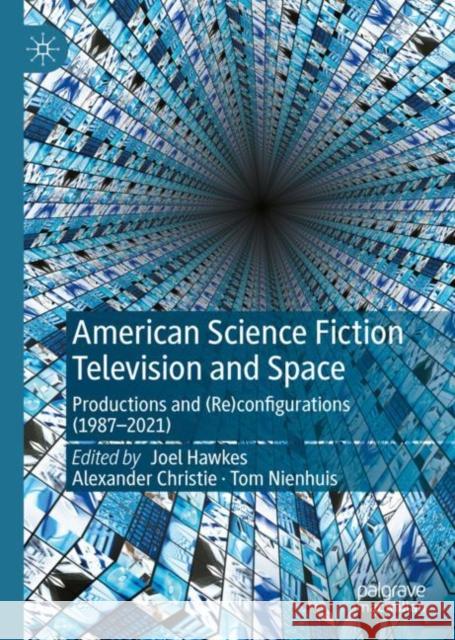American Science Fiction Television and Space: Productions and (Re)Configurations (1987-2021) » książka
American Science Fiction Television and Space: Productions and (Re)Configurations (1987-2021)
ISBN-13: 9783031105272 / Angielski / Twarda / 2023 / 322 str.
American Science Fiction Television and Space: Productions and (Re)Configurations (1987-2021)
ISBN-13: 9783031105272 / Angielski / Twarda / 2023 / 322 str.
(netto: 613,40 VAT: 5%)
Najniższa cena z 30 dni: 539,74
ok. 16-18 dni roboczych.
Darmowa dostawa!
This collection reads the science fiction genre and television medium as examples of heterotopia (and television as science fiction technology), in which forms, processes, and productions of space and time collide – a multiplicity of spaces produced and (re)configured. The book looks to be a heterotopic production, with different chapters and “spaces” (of genre, production, mediums, technologies, homes, bodies, etc), reflecting, refracting, and colliding to offer insight into spatial relationships and the implications of these spaces for a society that increasingly inhabits the world through the space of the screen. A focus on American science fiction offers further spatial focus for this study – a question of geographical and cultural borders and influence not only in terms of American science fiction but American television and streaming services. The (contested) hegemonic nature of American science fiction television will be discussed alongside a nation that has significantly been understood, even produced, through the television screen. Essays will examine the various (re)configurations, or productions, of space as they collapse into the science fiction heterotopia of television since 1987, the yearStar Trek: Next Generationbegan airing.
This collection reads the science fiction genre and television medium as examples of heterotopia (and television as science fiction technology), in which forms, processes, and productions of space and time collide – a multiplicity of spaces produced and (re)configured. The book looks to be a heterotopic production, with different chapters and “spaces” (of genre, production, mediums, technologies, homes, bodies, etc), reflecting, refracting, and colliding to offer insight into spatial relationships and the implications of these spaces for a society that increasingly inhabits the world through the space of the screen. A focus on American science fiction offers further spatial focus for this study – a question of geographical and cultural borders and influence not only in terms of American science fiction but American television and streaming services. The (contested) hegemonic nature of American science fiction television will be discussed alongside a nation that has significantly been understood, even produced, through the television screen. Essays will examine the various (re)configurations, or productions, of space as they collapse into the science fiction heterotopia of television since 1987, the year Star Trek: Next Generation began airing.











